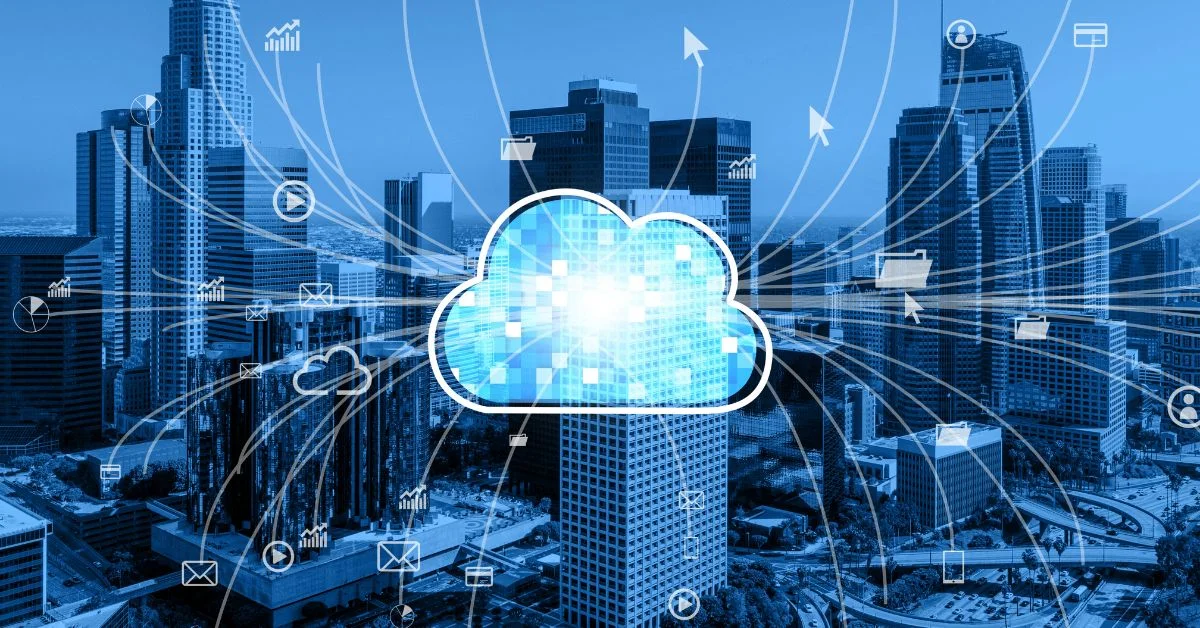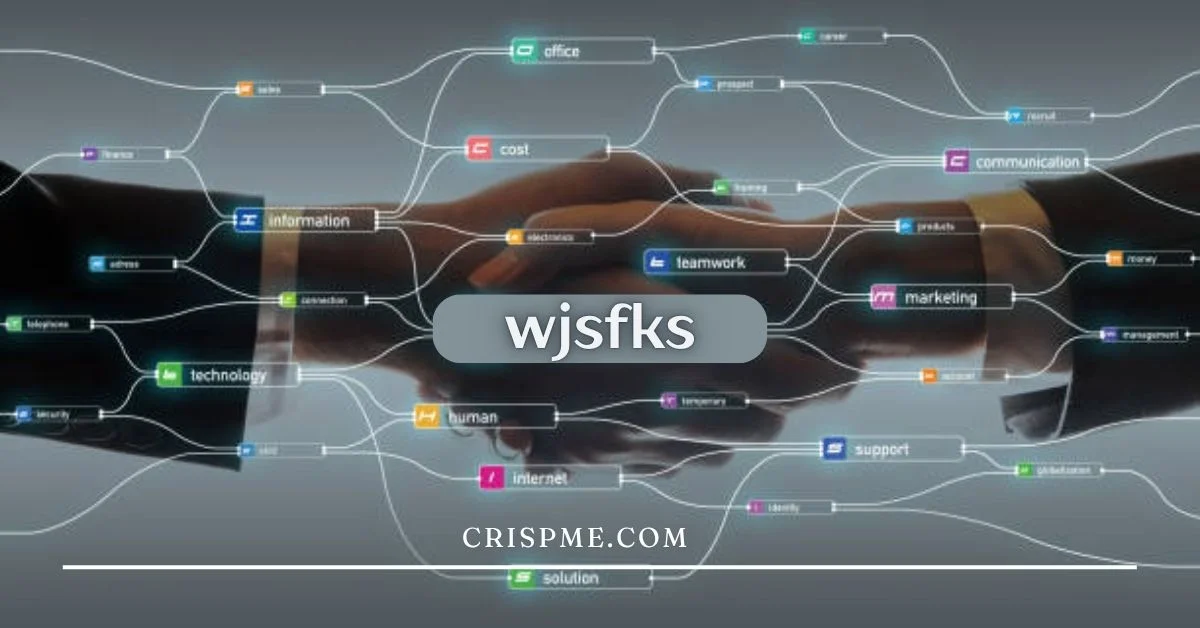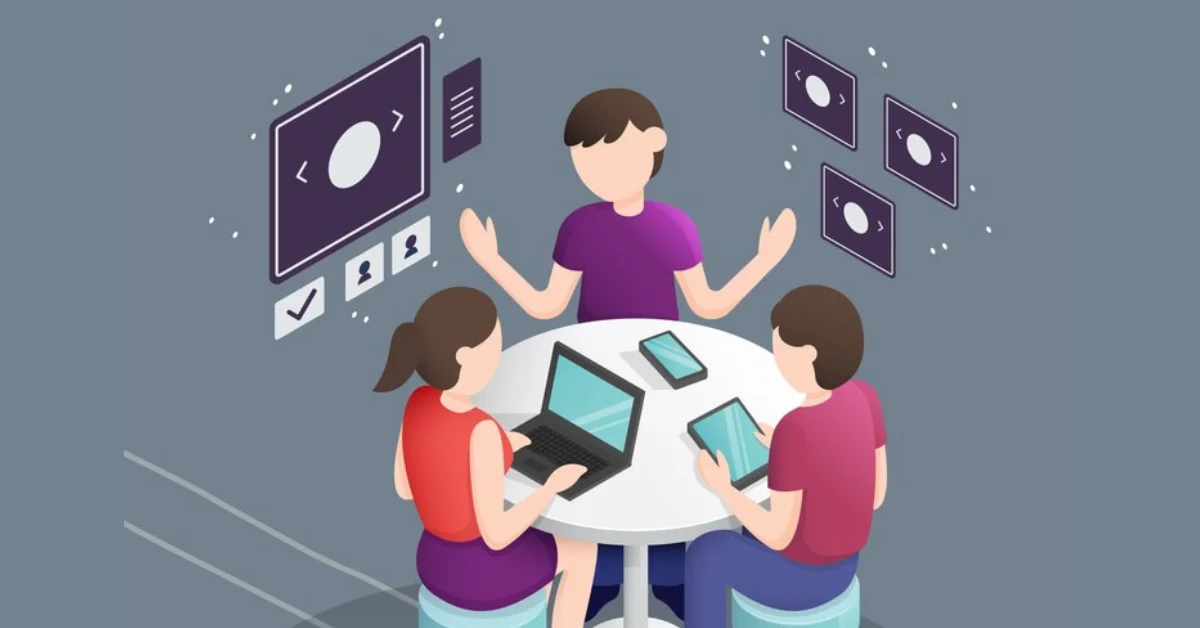TECHNOLOGY
Top Trends in Cloud Computing You Need to Know in 2024

Is your company looking to grow and increase its return on investment? If so, you’ll acknowledge the importance of digital transformation. The digital transformation modifies your current business or creates something new using contemporary digital technology, such as cloud modernization and trends in private, public, and hybrid clouds.
Businesses are using Cloud more and more throughout their digital transformation. Specifically, as we see how our world has shifted from old traditional infrastructures to becoming increasingly cloud-based, cloud computing is emerging as a critical component that aids businesses in achieving their digital transformation.
Businesses will remain ahead of the competition if they can quickly adapt to this shift, make the correct decisions, and incorporate the best partners to enhance their capabilities. Cost-benefit evaluations have never been definitive, despite figures demonstrating commercial savings during the nearly two decades that cloud computing has been around. However, it has altered the way businesses exchange, store, and convey information. Also, it has altered the way they allocate computer resources.
As developers continue to integrate cloud services within their software development life cycle, the expectations of the cloud industry change. Development teams desire faster speed, more robust servers, tighter security, and more efficient workflows. However, there are instances when it seems like the ensuing advancements happen more quickly than you can include your previous set of adjustments. InternetSoft, a Software Development Company in California, is ready to support you in staying ahead of the curve and helping your business make wise decisions.
What is cloud computing?
A framework known as “cloud computing” offers online access to computer resources (such as servers, storage, databases, and software) as a substitute to local hardware and infrastructure. This implies that individuals with any device that has an internet connection can access the materials at any time and from any location.
The cloud remains to be a vibrant and dynamic source of opportunity and innovation in 2024. Now let’s explore the leading trends in cloud computing.
Top Cloud Computing Trends in 2024
- Automation
The automation potential of the cloud is its main power. When implemented correctly, automation may boost the productivity of your delivery team, enhance the caliber of networks and systems, and lower the danger of sluggish or unavailable services. The difficulty with automation is that it is not simple. More gadgets will likely be released to improve automation with cloud suppliers as funding for AI and citizen developer tools increases.
- Multi-Cloud or Hybrid
Multi-cloud computing will most likely become the standard. Several public and private clouds will be used by businesses more frequently to satisfy their unique needs. That being said, the hybrid cloud is here to stay. In fact, as more companies shift their workloads to the cloud, hybrid clouds are expected to become even more prevalent. What then is the future hold for cloud security and storage? Businesses are likely to use a combination of hybrid and multi-cloud installations in an effort to strike the ideal balance between security, control, agility, and flexibility.
- Edge computing
Data processing, analytics, and storage that is done closer to the source geographically are all included in edge computing. It indicates that data processing and storing are done closer to the original sensors and equipment. Numerous advantages are offered by it, including decreased latency, improved efficiency, higher security, privacy, and a fast data transmission rate. It processes data which is not limited by time and operates in real-time. It is simple to obtain quick processing and lower latency as 5G usage grows. Additionally, a lot of IT and telecom companies are merging, which is why edge computing is becoming more popular. Edge computing will be essential in delivering real-time data and data analysis with the proliferation of IoT devices.
- Quantum Computing
Technology is quite futuristic and constantly changing. It goes without saying that as time goes on, we always anticipate computer performance to get better. This is the application of quantum computing. Robust computers require hardware development that makes use of quantum-mechanical phenomena like entanglement, superposition, and similar ones. Computers and systems can be designed to process data at lightning speed thanks to quantum computing. Additionally, keep in mind that while cloud computing demands quick network systems, there are still backlogs. For this reason, it will still be applicable in the future.
- The Internet of Things
In order to efficiently store, process, and analyze the massive volumes of data generated by increasingly networked devices, cloud computing is essential. Real-time insights into data and remote supervision capabilities are made possible by the incorporation of Internet of Things with the cloud, an area of innovation that the cloud sector is increasingly focusing on. IoT is starting to disrupt business, much like edge computing did. To keep ahead of the competition, IoT Application Development can make it simple for you to link smart devices with your company. Given that younger generations are accustomed to technology more than older generations were, it’s likely that the majority of them would consider purchasing a wearable or linked car as their first digital acquisition. Having said that, you should be aware that it will generate enormous amounts of data that must be processed and stored. The Cloud is the ideal tool for this, so this is where it comes into play.
- Docker and Kubernetes for overseeing Cloud Deployment
An open-source container orchestration technology called Kubernetes makes it possible to automate the deployment, scaling, and administration of applications that are containerized. With the help of the well-known containerization technology Docker, developers may package applications meant to operate on any platform into containers. The management of cloud installations by developers can be revolutionized by Kubernetes and Docker. Additionally, it makes it possible for developers to scale and deploy apps more quickly and easily.
Wrapping Up
Businesses’ approach to IT needs is being completely transformed by cloud computing, including cost reductions as well as innovation and agility. Because the cloud is a fresh approach to do business, many kinds of enterprises are currently open and using it to conduct daily operations. The advantages of employing a service-based approach and providing customers with software, apps, and services through the internet without having to worry about the supporting infrastructure are all included in cloud computing.
Because of the pay-as-you-go model and the emerging trends and innovations in cloud computing, excellent scalability can now be achieved quickly and affordably. This is pushing companies everywhere to leverage these technologies to grow their operations by utilizing cloud services. In addition to high-end capabilities like serverless architecture, data protection, and backup and recovery, cloud consulting services are also reasonably priced and incorporate cutting-edge technologies like AI, IoT, Kubernetes, and Docker.
Want a lead on the latest technology? Get in touch with Internet Soft today for a quick call to start today.
TECHNOLOGY
WJSFKS Explained: From Digital Slang to Business Framework

Introduction to WJSFKS
Language is constantly evolving, and with the rise of digital communication, new slang terms are emerging at lightning speed. One such term that has captured attention in recent discussions is “WJSFKS.” It might seem like just another jumble of letters at first glance, but this abbreviation holds a deeper meaning and significance. From its origins to its applications in business strategies, WJSFKS has transformed into more than just digital slang; it’s now a framework that influencers and marketers are starting to embrace. Join us as we dive into the fascinating world of WJSFKS—where language meets innovation!
The Origins of WJSFKS
WJSFKS originated in the vibrant world of online communication. It first appeared on social media platforms and forums, where users sought a way to express complex ideas quickly.
The acronym stands for “What Just Happened? So F*cking Crazy Sh*t.” Its roots lie in the spontaneous nature of digital conversations. As memes became prevalent, so did new forms of expression like WJSFKS.
Initially used for humorous reactions to unexpected events, it resonated with those who craved authenticity. This slang captured emotions that words alone often failed to convey.
As its popularity grew, content creators began incorporating WJSFKS into their posts and videos. This helped solidify its place within internet culture and sparked wider adoption across various demographics.
How WJSFKS Became a Popular Digital Slang
WJSFKS emerged as a digital slang term that resonated with internet users. It encapsulates emotions and situations succinctly, making it ideal for fast-paced online communication.
The rise of social media platforms played a pivotal role in its popularity. As people sought quicker ways to express themselves, acronyms like WJSFKS caught on rapidly.
Memes and viral content also contributed to its spread. Influencers began incorporating the term into their posts, further embedding it within popular culture.
Moreover, the playful nature of such slang fosters community among users. Sharing inside jokes through language creates bonds in online spaces.
As conversations evolved, so did the need for expressive shorthand like WJSFKS. Its versatility allows it to fit various contexts—from casual chats to more serious discussions—enhancing its appeal across diverse audiences.
Business Applications and Benefits of WJSFKS
WJSFKS has transitioned from a digital slang to an intriguing tool in the business realm. Companies are leveraging this term to resonate with younger audiences, creating relatability and trust.
In marketing campaigns, WJSFKS can serve as a catchy hook. It captures attention quickly, especially on social media platforms where brevity is key. This connection fosters engagement and encourages sharing.
Furthermore, using WJSFKS in branding initiatives allows businesses to stand out. They showcase their adaptability and modern understanding of communication trends. This appeal can lead to increased brand loyalty among consumers who appreciate innovation.
Collaboration within teams also benefits from incorporating such contemporary language. It fosters a culture that values creativity and openness, essential traits for thriving in today’s fast-paced market environment.
Using WJSFKS in Marketing and Branding Strategies
Integrating WJSFKS into marketing strategies can create a fresh and relatable approach. Brands that adopt this digital slang resonate more with younger audiences. It injects personality into campaigns, making them feel current and engaging.
Using WJSFKS in social media posts makes messages stand out. When brands speak the language of their audience, they foster connection. This not only boosts engagement but also encourages sharing among users.
Additionally, incorporating WJSFKS into branding efforts helps differentiate from competitors. A unique voice attracts attention and sparks curiosity about the brand’s offerings.
However, it’s crucial to use it strategically. Overusing slang may alienate some customers or dilute messaging clarity. Balancing authenticity with professionalism is key to maximizing impact while maintaining brand integrity.
Criticisms and Controversies Surrounding WJSFKS
As with many digital slangs, WJSFKS has not escaped criticism. Some argue that its meaning is too ambiguous. This can lead to misunderstandings in both casual conversations and professional settings.
Another concern arises from the rapid evolution of slang itself. Language purists often feel that terms like WJSFKS dilute traditional communication methods. They believe it creates a barrier for those unfamiliar with such abbreviations.
Furthermore, there’s the issue of context. Using WJSFKS inappropriately could potentially alienate audiences or customers who may not recognize it as a legitimate term. Missteps like this can damage brand credibility.
Despite these criticisms, some see value in its adaptability and innovation within digital culture. The debate continues as society grapples with balancing creativity and clarity in language use.
Conclusion: Embracing the Evolution of Language and Communication
Language is an ever-evolving entity, constantly adapting to the needs and preferences of its users. WJSFKS serves as a prime example of this evolution. Initially born in digital spaces, it has transcended mere slang to become a framework embraced by businesses looking for innovative ways to communicate.
The adoption of terms like WJSFKS signifies more than just trendy jargon; they represent shifts in how we engage with one another both personally and professionally. As communication continues to grow more dynamic, understanding these changes can enhance relationships, foster creativity, and drive successful marketing strategies.
Embracing concepts like WJSFKS’s not only enriches our vocabulary but also enhances our ability to connect in an increasingly digital world. Language isn’t static; it’s alive — reflecting cultural nuances while shaping interactions across various platforms. Engaging with new terminology keeps us relevant and adaptable.
So whether you are using WJSFKS’s among friends or integrating it into your business practices, recognize the power that language holds in forming connections and driving innovation. Embrace the journey ahead as we navigate through trends that redefine how we express ourselves every day.
Loved this post? You’ll find even more just like it on our blog!
APPS & SOFTWARE
Geekzilla Redes Sociales: Embracing Geek Culture on Social Media

Introduction to Geekzilla Redes Sociales
Welcome to the vibrant universe of Geekzilla Redes Sociales—where geek culture meets the digital age! Social media has become the ultimate playground for fans of comics, gaming, sci-fi, anime, and everything in between. No longer confined to niche communities, geeks now thrive in online spaces that celebrate creativity, passion, and connection.
Whether you’re a die-hard fan or just stepping into the world of fandoms, social media offers endless opportunities to engage, create, and grow. Let’s explore how Geekzilla has transformed social platforms into dynamic hubs for geek expression.
The Rise of Geek Culture on Social Media
Geek culture has undergone a major transformation, gaining visibility and influence across major social platforms.
- From Basement to Mainstream: Geeks are no longer hidden in the shadows—now they shape trends and drive engagement.
- Social Media as a Catalyst: Platforms like Twitter, Reddit, and Instagram amplify fan voices and creativity.
- Hashtag Movements: Tags like
#GeekCulture,#CosplayLife, and#AnimeArtbring fans together from around the world. - Rise of Influencers: Geek influencers now shape narratives, spark trends, and even collaborate with brands.
How Social Media Has Changed the Way Geeks Connect and Share?
Thanks to social media, geeks are more connected than ever before.
- Instant Connections: Share interests and spark conversations instantly through posts, tweets, and livestreams.
- Visual Storytelling: TikTok, YouTube, and Instagram allow fans to express themselves through cosplay, art, and skits.
- Global Communities: Find your tribe—whether you’re into Marvel, Star Wars, anime, or retro games.
- Creative Collaborations: Projects, fan-made content, and podcasts often emerge from online interactions.
- Cultural Impact: Online discussions also spotlight representation, diversity, and inclusivity in geek spaces.
The Most Popular Social Media Platforms for Geeks
Each platform brings something unique to the table for geek enthusiasts:
- Reddit: Perfect for niche subreddits covering every geeky obsession imaginable.
- Twitter/X: Ideal for real-time news, trending hashtags, and short-form fandom reactions.
- Instagram: A creative hub for cosplay photography, fan art, and reels.
- YouTube: From in-depth lore videos to live gameplay, it’s a haven for geek creators.
- TikTok: Great for viral content, fan skits, and quick tutorials or hot takes.
Embracing Geek Culture: Tips for Creating a Successful Online Presence
Want to build your brand or community in geek spaces online? Start here:
- Be Authentic: Share what you genuinely love—your passion will attract others.
- Engage Actively: Join fandom discussions, comment on others’ posts, and respond to your audience.
- Use Visuals: Leverage GIFs, artwork, cosplay, and videos to enhance your posts.
- Be Consistent: Keep your tone and theme steady across all platforms.
- Collaborate with Others: Partnerships with other creators increase reach and bring fresh ideas.
From Fans to Creators: How Geeks Are Using Social Media to Launch Careers
Many geeks are now turning their passions into professions:
- Monetizing Content: Platforms like Patreon, Ko-fi, and YouTube offer monetization paths.
- Influencer Collaborations: Creators partner with brands and fandoms to market geek-centric products.
- Building a Personal Brand: Unique content helps fans stand out and gain recognition.
- Expanding into Merch or Services: Fan artists and creators often launch shops or offer services like commissions or tutorials.
- Networking Opportunities: Online events and collaborations often lead to real-world opportunities.
The Future of Geek Culture on Social Media
Geek culture online is evolving faster than ever. Here’s what the future may hold:
- Augmented & Virtual Reality: Imagine attending a virtual Comic-Con or live streaming inside a game world.
- Hyper-Niche Communities: More space for specific fandoms and micro-communities to thrive.
- Global Diversity: A broader range of creators from different cultures joining the conversation.
- Brand-Creator Fusion: Expect more collaborations between geek influencers and global brands.
- Creator Tools & Accessibility: Easier tools will empower more fans to become content creators.
Conclusion
Geekzilla Redes Sociales represents a powerful shift in how fandoms interact, grow, and thrive online. Social media has created a vibrant, global arena where geeks of all kinds share their passions freely, make lasting connections, and even launch meaningful careers.
Whether you’re a cosplayer, a gamer, an anime artist, or a comic book collector, there’s a place for you in this digital frontier. With boundless opportunities to create, collaborate, and connect, the online geek community is shaping a bold and inclusive future for fandom culture.
Now’s the time to embrace your inner geek—online and proud!
ALSO READ: Ennuifans: Connecting Fans Worldwide Through Creativity
FAQs
What is Geekzilla Redes Sociales?
Geekzilla Redes Sociales refers to the vibrant presence of geek culture on social media platforms, where fans gather, create, and connect.
Which social media platform is best for geek communities?
Reddit, Instagram, TikTok, Twitter, and YouTube are the top platforms for geek content, each catering to different formats and interactions.
Can geeks build careers through social media?
Yes! Many have turned hobbies like cosplay, art, gaming, and reviews into full-time careers through monetization, brand deals, and content creation.
How do I start sharing geek content online?
Begin by posting what you love—cosplay photos, fan theories, unboxing videos, or art. Engage with others and stay consistent with your content.
What makes geek culture thrive on social media?
The passion, creativity, and diversity of the geek community, combined with easy content sharing and global connectivity, drive the culture forward online.
TECHNOLOGY
Everything About Envolvam

In today’s digital age, where remote work and collaboration are becoming increasingly prevalent, tools that facilitate seamless communication and teamwork are highly sought after. One such tool that has gained significant attention is Envolvam. But what exactly is Envolvam, and how does it revolutionize the way we work? Let’s delve into the details.
Introduction to Envolvam
Envolvam is a comprehensive collaboration platform designed to streamline communication, enhance productivity, and foster teamwork within organizations. It offers a wide range of features and functionalities tailored to meet the diverse needs of businesses, educational institutions, healthcare facilities, and more.
The Origin and Background of Envolvam
Originally conceptualized as a solution to address the challenges of remote work, Envol,vam was developed by a team of seasoned professionals with extensive experience in software development and project management. Drawing inspiration from the growing demand for flexible work environments, they set out to create a platform that would empower individuals and teams to collaborate effectively irrespective of their physical location.
Understanding Envolvam’s Purpose
How Envolvam Works
At its core, Envolvam leverages cutting-edge technologies such as cloud computing, artificial intelligence, and machine learning to provide users with a seamless collaboration experience. Its intuitive interface and user-friendly features make it easy for individuals to communicate, share files, manage tasks, and collaborate on projects in real-time.
Key Features of Envolvam
Envolvam offers a plethora of features designed to streamline workflows and optimize collaboration. From video conferencing and instant messaging to document sharing and project management, it provides all the tools necessary to facilitate productive teamwork.
ALSO READ: DECODING XVIF: UNVEILING THE VIRTUAL INTEGRATION FRAMEWORK
Applications of Envolvam
Envolvam in Business
In the business world, Envol,vam serves as a lifeline for remote teams, enabling them to stay connected and productive regardless of geographical barriers. It facilitates virtual meetings, enables document collaboration, and simplifies project management, thereby enhancing overall efficiency and performance.
Envolvam in Education
Educational institutions leverage Envolvam to facilitate online learning, virtual classrooms, and collaborative research projects. It enables educators to engage with students in real-time, share resources, and administer assessments effectively, thereby enriching the learning experience.
Envolvam in Healthcare
In the healthcare sector, Envol,vam plays a crucial role in facilitating telemedicine, remote consultations, and interdisciplinary collaboration among healthcare professionals. It enables seamless communication between doctors, nurses, and other caregivers, leading to improved patient outcomes and satisfaction.
Advantages of Using Envolvam
Efficiency and Productivity Boost
By centralizing communication and collaboration tools in a single platform, Envol,vam eliminates the need for switching between multiple applications, thereby saving time and increasing productivity. Its intuitive interface and user-friendly features further enhance efficiency across teams.
Enhanced Collaboration
Envolvam promotes collaboration by providing users with easy access to shared documents, real-time messaging, and video conferencing capabilities. This fosters a culture of teamwork and innovation within organizations, leading to better decision-making and problem-solving.
Cost-effectiveness
Compared to traditional communication methods such as email and phone calls, Envol,vam offers a more cost-effective solution for organizations looking to streamline their operations. Its subscription-based model allows businesses to scale their usage according to their needs, eliminating the need for costly infrastructure investments.
ALSO READ: EVERYTHING ABOUT BFG098
Challenges and Limitations of Envolvam
Security Concerns
While Envolvam offers robust security features to protect user data, concerns regarding data privacy and cybersecurity remain a challenge for organizations, especially those operating in highly regulated industries. It’s essential for users to implement best practices and adhere to security protocols to mitigate potential risks.
Learning Curve
Despite its user-friendly interface, some users may experience a learning curve when transitioning to Envol,vam, particularly if they are accustomed to traditional communication methods. Providing comprehensive training and ongoing support can help alleviate this challenge and ensure smooth adoption across teams.
Future Outlook of Envolvam
As technology continues to evolve, so too will Envol,vam. With ongoing enhancements and updates, it is poised to remain at the forefront of the collaboration software market, catering to the ever-changing needs of businesses, educational institutions, and healthcare providers alike.
Conclusion
In conclusion, Envolvam represents a paradigm shift in how we collaborate and communicate in the digital age. Its innovative features, seamless integration, and user-friendly interface make it a valuable asset for organizations looking to enhance productivity, streamline workflows, and foster teamwork.
ALSO READ: EVERYTHING ABOUT DIZIPAL 554
FAQs
Is Envolvam suitable for small businesses?
Yes, Envol,vam caters to businesses of all sizes, offering scalable solutions tailored to meet the specific needs of small and medium-sized enterprises.
Can Envolvam integrate with existing software systems?
Absolutely! Envol,vam offers seamless integration capabilities with a wide range of third-party applications, allowing users to streamline their workflows and maximize efficiency.
How secure is Envolvam?
Envol,vam prioritizes the security and privacy of user data, employing industry-standard encryption protocols and robust security measures to safeguard sensitive information.
Does Envolvam offer customer support?
Yes, Envol,vam provides dedicated customer support to assist users with any queries or technical issues they may encounter. Our team is available around the clock to ensure a seamless experience.
Is Envol,vam compatible with mobile devices?
Absolutely! Envol,vam offers native mobile applications for both iOS and Android devices, enabling users to stay connected and productive on the go.

 TECHNOLOGY4 months ago
TECHNOLOGY4 months agoBlog Arcy Art: Where Architecture Meets Art

 ENTERTAINMENT2 weeks ago
ENTERTAINMENT2 weeks agoExploring the Kristen Archives: A Treasure Trove of Erotica and More

 LIFESTYLE4 months ago
LIFESTYLE4 months agoThe Disciplinary Wives Club: Spanking for Love, Not Punishment

 LIFESTYLE2 weeks ago
LIFESTYLE2 weeks agoWho Is Sandra Orlow?

 GENERAL3 days ago
GENERAL3 days ago5 Factors That Affect Tattoo Removal Success

 ENTERTAINMENT8 months ago
ENTERTAINMENT8 months agoYuppow: Your Free Source for Movies and TV Shows

 ENTERTAINMENT1 week ago
ENTERTAINMENT1 week agoKiss KH: The Streaming Platform Redefining Digital Engagement and Cultural Currents

 HOME IMPROVEMENT5 days ago
HOME IMPROVEMENT5 days agoGet Your Grout to Gleam With These Easy-To-Follow Tips












